With her newborn less than a week old, Valerie Bush realized she needed breastfeeding help.
Her daughter, Gracie, wouldn’t latch properly and it began causing Bush some pain.
After a phone call to the Spectrum Health Lactation Services Warm Line, she found herself video-chatting with a certified lactation peer counselor in the privacy of her Holland, Michigan, home.
“In this age, it’s just an easier way to do things online rather than having to go in,” Bush said. “It worked out well.”
The video chat came compliments of a service offered through the Spectrum Health app. Through the breastfeeding program, a lactation peer counselor can talk face-to-face with a mom via secure video, coaching her through any breastfeeding struggles.
It’s free and available to anyone in Michigan, whether they’re a Spectrum Health patient or not, said Laurel Jander, nurse manager for Spectrum Health’s Women and Infant Services.
“We all are very, very passionate about helping moms succeed with breastfeeding,” Jander said. “We do our best to help everyone, but they are here in the hospital for such a short period of time.”
The video chat is a valuable tool patients can use to find care even after they’ve returned home.
Schedule a chat
A patient will need wireless internet access, a smart device and an email address to participate in a video chat.
Here’s how to schedule one:
- Call the Spectrum Health Lactation Services Warm Line at 616.391.9437.
- Leave a message with your name, date of birth, phone number, email address and a brief description of your breastfeeding problem.
- Someone from Spectrum Health Lactation Services will call back to schedule an appointment.
- Look for an email with the appointment confirmation and step-by-step instructions.
It’s ideal for moms who had C-sections, since they can’t drive for several days after leaving the hospital, for moms without transportation, or for moms with other little children at home, Jander said.
‘An amazing tool’
Moms who opt for a video chat will find Linda Kisner at the other end. Kisner is a Spectrum Health lactation peer counselor.
“Once we started using these videos, it’s been an amazing tool,” Kisner said. “It allows me to see mom and her baby. I am able to see what’s going on and how I can help.”
Before the video chats were available, a lactation peer counselor or lactation consultant could simply talk by phone to a mom who needed breastfeeding help, although this could prove challenging—like “trying to solve a huge puzzle blindfolded,” Kisner said.
In one month, Kisner makes an average of 250 follow-up phone calls to breastfeeding moms whose babies were delivered at Spectrum Health Butterworth Hospital. She returns another 120 calls to community members who have reached out to her department with questions.
And a quick phone call is often all that’s needed—but not always. For a mom who’s struggling, a phone call can be insufficient. A video component can make all the difference.
“The video is a lot more personal, and I can tailor the consultation to the mom and her baby’s specific needs,” Kisner said.
Since the Spectrum Health breastfeeding video consultations became available in August 2016, Kisner has hosted about 90 video chats. Each one usually lasts 15 to 20 minutes. They’re available 9 a.m. to 5 p.m. Monday through Friday.
Kisner assures moms the video chat is HIPAA-compliant. It’s conducted over a secure network server and Kisner is the only person in the office at the time of the chat.
“I try to make it as comfortable for moms as possible,” she said.
Sometimes, the breastfeeding issues surpass what Kisner can address in a 15- to 20-minute video chat, so she then schedules moms to meet with a lactation consultant in the outpatient clinic.
Back in business
About a month after the video chat, Bush and Gracie found themselves experiencing more success with breastfeeding.
On the day of her video chat, Bush got help from her husband, Andy, who positioned the camera so Kisner could clearly see Gracie’s latch during breastfeeding.
Gracie had been born at home May 28, but the midwife recommended they take her to Helen DeVos Children’s Hospital because she had low oxygen levels and glucose issues. She’d been admitted to the neonatal intensive care unit for two days before going home again.
That’s when breastfeeding became difficult—and when she found herself turning to the video chat.
It proved to be exactly what she needed.
“Linda was very helpful,” Bush said.
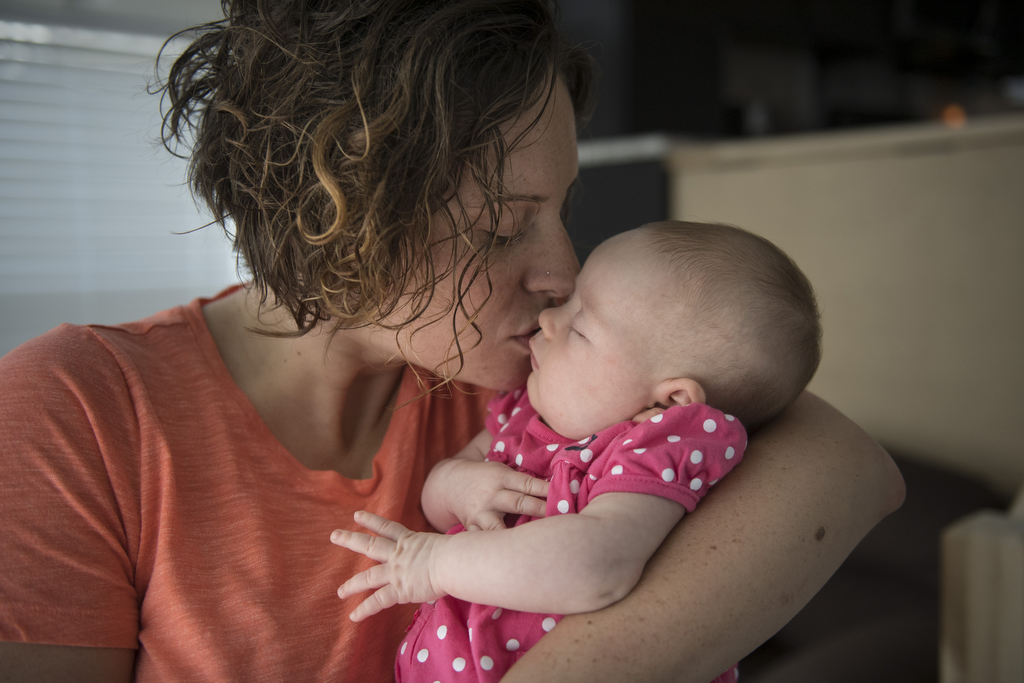
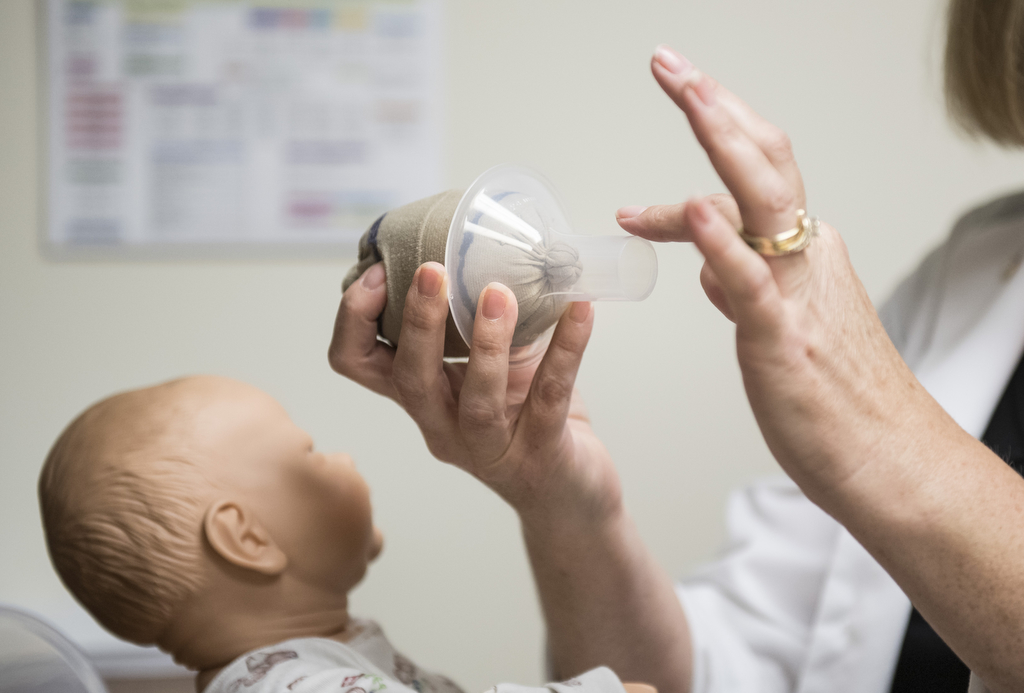


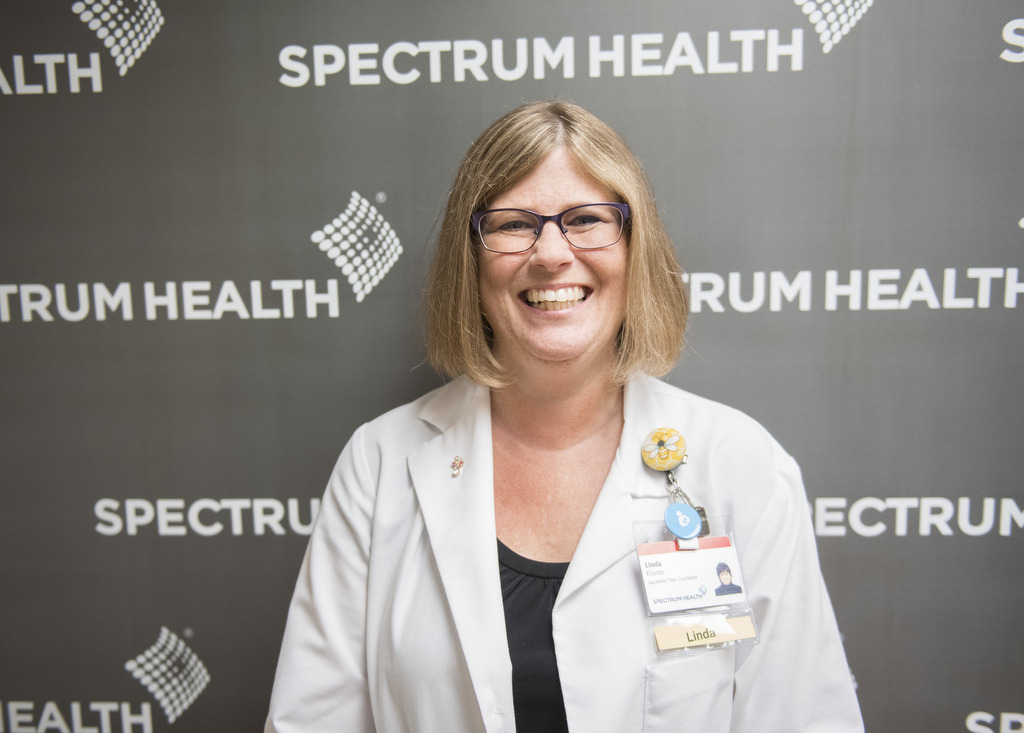
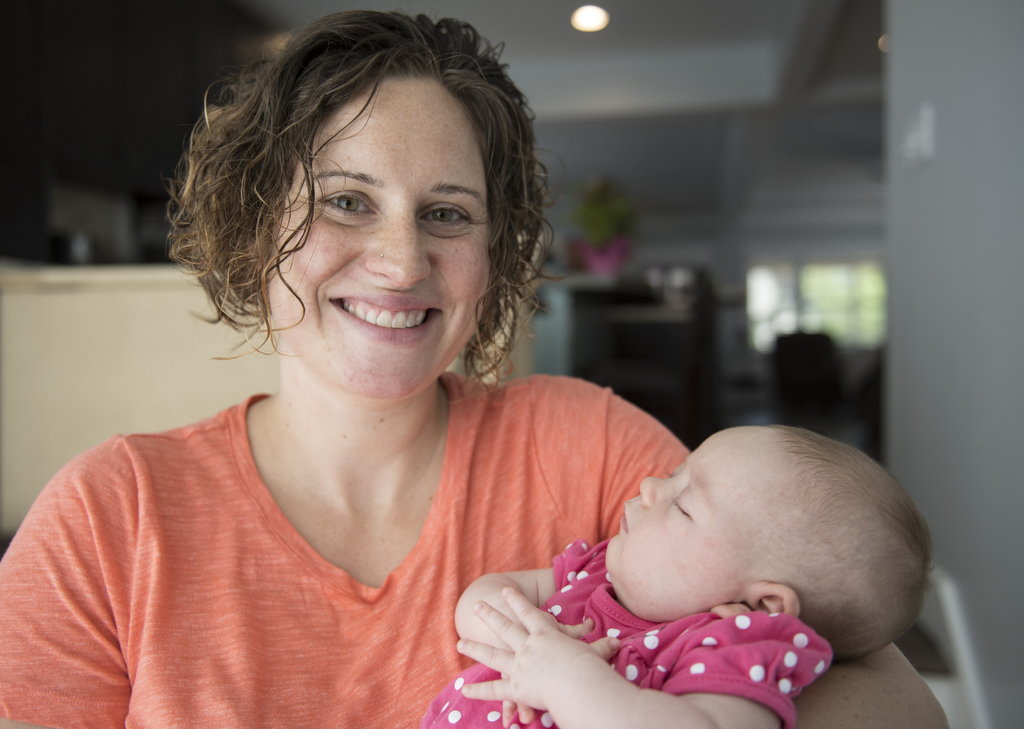






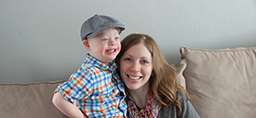 /a>
/a>
 /a>
/a>
 /a>
/a>